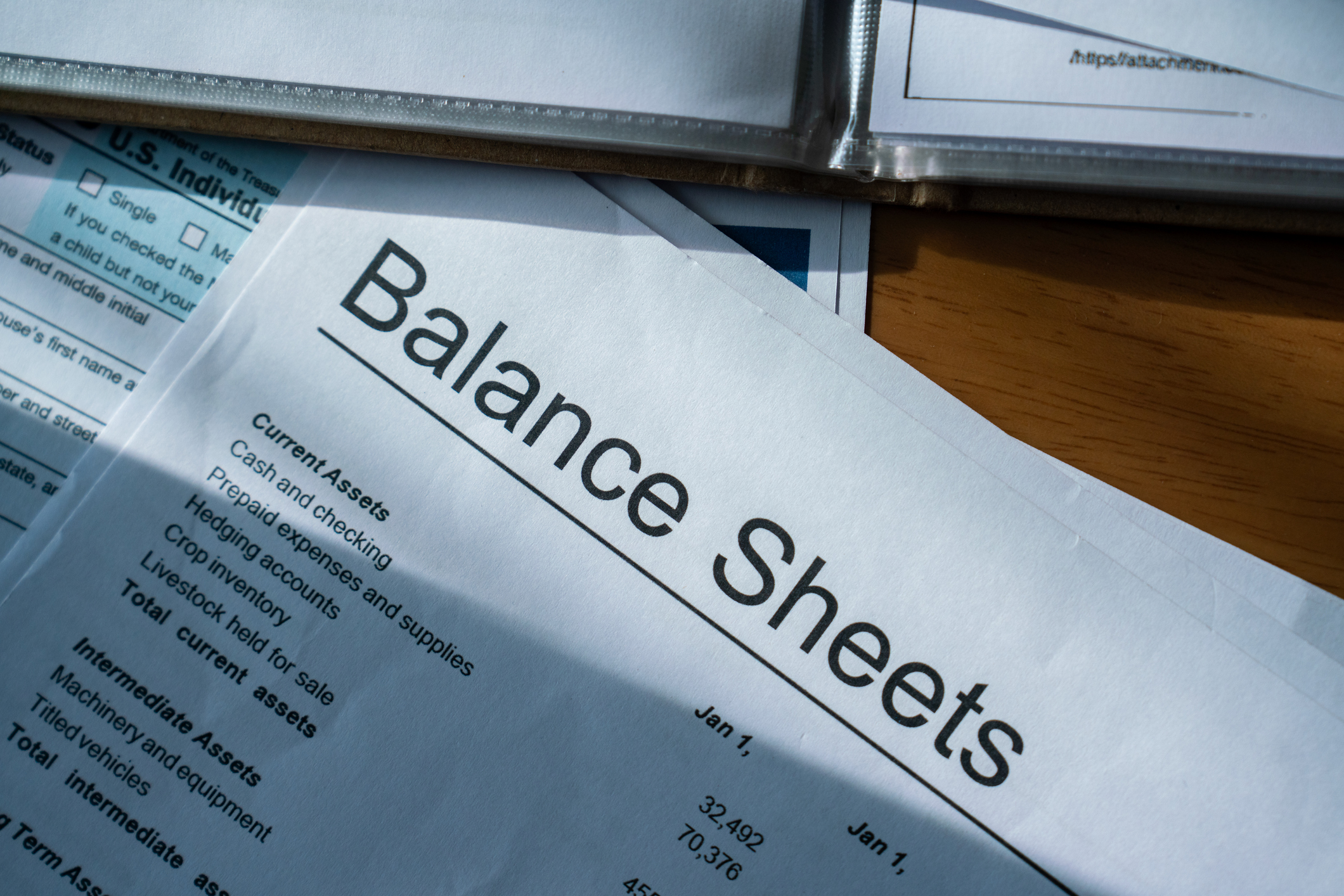A Disability Doesn’t Have to Force an Early Retirement
You don't even have to tell your employer unless you need an accommodation.

Profit and prosper with the best of Kiplinger's advice on investing, taxes, retirement, personal finance and much more. Delivered daily. Enter your email in the box and click Sign Me Up.
You are now subscribed
Your newsletter sign-up was successful
Want to add more newsletters?

Delivered daily
Kiplinger Today
Profit and prosper with the best of Kiplinger's advice on investing, taxes, retirement, personal finance and much more delivered daily. Smart money moves start here.

Sent five days a week
Kiplinger A Step Ahead
Get practical help to make better financial decisions in your everyday life, from spending to savings on top deals.

Delivered daily
Kiplinger Closing Bell
Get today's biggest financial and investing headlines delivered to your inbox every day the U.S. stock market is open.

Sent twice a week
Kiplinger Adviser Intel
Financial pros across the country share best practices and fresh tactics to preserve and grow your wealth.

Delivered weekly
Kiplinger Tax Tips
Trim your federal and state tax bills with practical tax-planning and tax-cutting strategies.

Sent twice a week
Kiplinger Retirement Tips
Your twice-a-week guide to planning and enjoying a financially secure and richly rewarding retirement

Sent bimonthly.
Kiplinger Adviser Angle
Insights for advisers, wealth managers and other financial professionals.

Sent twice a week
Kiplinger Investing Weekly
Your twice-a-week roundup of promising stocks, funds, companies and industries you should consider, ones you should avoid, and why.

Sent weekly for six weeks
Kiplinger Invest for Retirement
Your step-by-step six-part series on how to invest for retirement, from devising a successful strategy to exactly which investments to choose.
Robyn Dochterman has owned a chocolate shop in Marine on St. Croix, Minn., since 2010 and has spent a lot of those 13 years putting chocolate in molds and flipping them out.
This repetitive motion has damaged her hands, and although she has had a few procedures and an operation to fix the problem, it keeps returning. For the past several years, Dochterman, 61, has been trying to figure out how she can keep working and manage her pain.
“I own my own business and if I had to be here till 2 a.m., no big deal,” she says. “But now I have to dole out the hours to myself and make sure I don't overwork because I can't come back from that. It’s a sort of asset management.”
From just $107.88 $24.99 for Kiplinger Personal Finance
Become a smarter, better informed investor. Subscribe from just $107.88 $24.99, plus get up to 4 Special Issues

Sign up for Kiplinger’s Free Newsletters
Profit and prosper with the best of expert advice on investing, taxes, retirement, personal finance and more - straight to your e-mail.
Profit and prosper with the best of expert advice - straight to your e-mail.
Many older workers are facing the same dilemma as Dochterman. Those 55 and over now make up 24% of the workforce, up from 12% 25 years ago, says Richard Johnson, a senior fellow at the Urban Institute think tank. According to a 2022 study in the journal Research on Aging, one in four workers who are still healthy in their mid-fifties will experience a disability in the next few years, making working more difficult. This includes both blue- and white-collar employees.
The disability can be caused by a sudden medical problem, such as a heart attack, a neurological disease such as Parkinson’s, mental health challenges or, like Dochterman, chronic wear and tear.
The journal study also found that three-fourths of workers with new disabilities in their late fifties or early sixties left the workforce before full retirement age; that compares to one-third of those who didn’t have a disability.
But many can’t or don’t want to give up their jobs. So how can they cope with their disability and continue working?
Support for disabled employees
Under the Americans with Disabilities Act, employers must provide “reasonable” accommodations to those with substantial impairments, which include problems hearing, seeing, speaking, breathing, performing manual tasks or caring for oneself. Reasonable is defined as not causing “undue hardship” for the company. Companies with fewer than 15 employees, religious organizations and private clubs are exempt from the law’s requirements.
Accommodations can include modifying equipment—even something as simple as a different chair, desk or keyboard—or changing work schedules or job restructuring. More information is available on the website of the U.S. Equal Employment Opportunity Commission. Click on the tab for employees and job applicants and over on the right, under the section for “discrimination by type,” select “disability.”
About half of workers with disabilities receive accommodations from employers, Johnson says, but “a lot of people don’t pursue it. To get accommodation, self-advocacy is really important. You have to be aggressive and pursue an accommodation with an employer.”
One great boon for workers with disabilities has been the move toward remote work since COVID. That is true for Peter Winkelstein, 66, a pediatrician who suffers from a degenerative muscular disease called inclusion body myositis, for which there is no treatment.
Winkelstein, of Buffalo, N.Y., received the diagnosis when he was 60 and now walks with crutches; it is likely he will be in a wheelchair within 10 years. His hands are getting weaker, making it more difficult to type. He runs out of energy much sooner than he used to.
While the diagnosis was devastating, the timing was fortunate. Winkelstein had recently retired from clinical practice to become the chief medical informatics officer for Kaleida Health, the largest health system in western New York. He is also the executive director of the University at Buffalo Jacobs School of Medicine and Biomedical Science Institute for Healthcare Informatics.
“There’s no way I could do clinical practice now,” Winkelstein says.
Then COVID hit, and remote became the new norm. It stayed that way for Winkelstein after the pandemic waned.
“It takes me a long time to get ready in the morning, and although I can still drive, if I had to go in to work full-time, it would be really hard for me,” he says.
Working with your employer
Winkelstein decided to tell his human resources department early about his disability — before it was obvious — and was glad he did. He got support, and the company received information that, in certain circumstances, could be life-saving. For example, if there is a fire in the building, there is now a plan for how to get him out since he wouldn’t be able to use the stairs.
No one is legally required to disclose a disability to their company unless requesting a workplace accommodation, says Ellen Dichner, a New York City labor lawyer. There are pros and cons to telling human resources, managers or colleagues about health challenges, experts say. Many people fear teasing or harassment, or that their coworkers and bosses will view them differently and that their career may stall.
When people can hide their disabilities — such as mental health issues — they often do, but that can become an emotional burden. Before his health challenge became obvious, Winkelstein says, he was reluctant to ask his colleagues for any kind of accommodation—even simply for a higher chair in a meeting room to make it easier for him to sit down and stand up.
But once it was more public, Winkelstein says, it proved a relief.
“You start discovering all the other people who have invisible disabilities who want to talk to you,” Winkelstein says. “So it's kind of a mini-support network.” He has also started a general support group for inclusion body myositis in the upstate New York area, which has been very helpful, he says.
Trying to keep workers on the job
Of course, some people want or need to leave their jobs due to their infirmities; this is often where Social Security Disability Insurance comes into play.
But there are numerous restrictions, and monthly payments average just $1,489. If you are able to work, you can earn $1,049 monthly on top of the disability payment, but most people don’t work, Johnson says.
“The disability procedure is complicated and only half the people who apply are accepted on the first round,” he adds. “And because the process is so long, once people are on, they don’t try to come off.” In other countries, he notes, people can be considered partially disabled and receive payments, but in the U.S. it is all or nothing.
The issue of keeping workers with health issues on the job is a major concern to both employees and employers; so much so that the U.S. Department of Labor’s Office of Disability Employment Policy launched a pilot program, RETAIN (Retaining Employment and Talent after Injury/Illness Network), in 2018 in a handful of states. The goal is to investigate early intervention strategies to ensure mid-career workers with disabilities can stay at or return to work.
One impetus for the program, says Yonatan Ben-Shalom, a principal researcher with the research and consulting organization Mathematica, is the lack of coordination between medical providers, employees and employers to ensure that as much as possible, people can return to work even with some sort of health problem.
While staying at a current job may be difficult in the long run for those with progressive disabilities, it’s important to figure out what aspects of your occupation you enjoy and might be able to pursue in the future. Winkelstein knows there will be a time when he will have to leave his present position, so he is taking a one-year course to earn a leadership coaching credential, something he can see doing part-time and fully remote.
A challenge for small business owners
Since Dochterman, as a small business owner, is boss, employee and human resource department rolled into one, she has turned to a career coach for help thinking through how to continue working with a disability.
The coach challenged Dochterman to work 20 hours a week for three or four months. Dochterman’s usual work week is 50 hours, up to 70 hours during the holiday rush, which can last from December to May and includes Christmas, Hanukkah, Valentine’s Day and Mother’s Day.
She managed to scale down to 30 hours during the slower summer season and learned to say, “My thumb says ‘enough.’ I’ve got to go home.” As easy as this may appear, she says doing it was a challenge. “I cannot overstate how difficult it is to make that switch in my thinking.”
She has one full-time employee and a few part-timers, and she says she is training them to help in more ways than in the past.
“When you're a small business owner, it’s pounded into you, you can do it all. But I can't hold that mindset anymore,” she says. “Not only can I not do it all, but it would be a bad business decision to try to do it all.”
What you can do if you have a disability
If you have any type of physical or mental health challenge that is affecting your work:
Research what your rights and options are
A good place to start is with the Job Accommodation Network. Go to the tab at the top labeled “individuals,” and you’ll find a wealth of resources about how, if and when to ask for accommodations as both a job seeker and employee. It also provides helpful information for employers that you can share.
Find out more about the federal Family and Medical Leave Act
With some restrictions, the law requires an employer to give 12 weeks of unpaid leave for a serious health condition. Eleven states—California, Colorado, Connecticut, Delaware, Massachusetts, Maryland, New Jersey, New York, Oregon, Rhode Island and Washington—and the District of Columbia offer paid leave, and some companies do as well. For more information on the federal law, go to www.dol.gov/agencies/whd/fmla.
Weigh the pros and cons of informing your employer
Consider telling your human resources department or a trusted manager about your situation. Remember that hiding a disability can be an emotional as well as a physical drain.
Find others in your situation
Joining an online or in-person support group for your particular disability can provide much-needed information and advice. Start one if one doesn’t exist in your area. Peter Winkelstein, the pediatrician with the degenerative muscular disease inclusion body myositis, first called the The Myositis Association to ask if there was a support group in his geographical area. When he discovered there wasn’t one, he asked if he could start one. The association offered him some training and support; he figured out the rest through his own research.
Note: This item first appeared in Kiplinger Retirement Report, our popular monthly periodical that covers key concerns of affluent older Americans who are retired or preparing for retirement. Subscribe for retirement advice that’s right on the money.
Related Content
Profit and prosper with the best of Kiplinger's advice on investing, taxes, retirement, personal finance and much more. Delivered daily. Enter your email in the box and click Sign Me Up.
Alina Tugend is a long-time journalist who has worked in Southern California, Rhode Island, Washington, D.C., London and New York. From 2005 to 2015, she wrote the biweekly Shortcuts column for The New York Times business section, which received the Best in Business Award for personal finance by the Society of American Business Editors and Writers. Her work has appeared in numerous publications, including The Times, The Atlantic, O, the Oprah Magazine, Family Circle and Inc. magazine. In 2011, Riverhead published Tugend's first book, Better by Mistake: The Unexpected Benefits of Being Wrong.
-
 Quiz: Do You Know How to Avoid the "Medigap Trap?"
Quiz: Do You Know How to Avoid the "Medigap Trap?"Quiz Test your basic knowledge of the "Medigap Trap" in our quick quiz.
-
 5 Top Tax-Efficient Mutual Funds for Smarter Investing
5 Top Tax-Efficient Mutual Funds for Smarter InvestingMutual funds are many things, but "tax-friendly" usually isn't one of them. These are the exceptions.
-
 AI Sparks Existential Crisis for Software Stocks
AI Sparks Existential Crisis for Software StocksThe Kiplinger Letter Fears that SaaS subscription software could be rendered obsolete by artificial intelligence make investors jittery.
-
 How to Read a Company's Balance Sheet Like a Stock Pro
How to Read a Company's Balance Sheet Like a Stock ProKnowing how to read this financial statement can help you separate strong companies from struggling ones.
-
 How to Choose the Best Charities to Donate To
How to Choose the Best Charities to Donate ToWhile you set your giving strategy, think about your values, and select organizations that will put your contributions to good use.
-
 Planning to Leave Your Business? How to Find the Right Buyer
Planning to Leave Your Business? How to Find the Right BuyerWhen you leave your business, your retirement, your employees and your legacy are at stake.
-
 What You Need to Know About Working For Yourself
What You Need to Know About Working For YourselfWhether you’re looking for a side gig or planning to start your own business, it has never been easier to strike out on your own. Here is our guide to navigating working for yourself.
-
 What the Family and Medical Leave Act Provides
What the Family and Medical Leave Act ProvidesThe Family and Medical Leave Act (FMLA) protects employees who need to take time off from work to care for themselves or others. You might be surprised at some of the situations it can apply to.
-
 Widows Share Their Financial Strategies
Widows Share Their Financial StrategiesWidows discuss what helped - and would have helped - with finances and documents after their spouses' deaths.
-
 More States Are Offering Family Leave
More States Are Offering Family LeaveIncreasingly, states are stepping in to offer family leave options for caregivers.
-
 Celebrating 100 Years of The Kiplinger Letter
Celebrating 100 Years of The Kiplinger LetterEditor emeritus Knight Kiplinger reflects on an enduring legacy of clear-eyed, unbiased journalism.